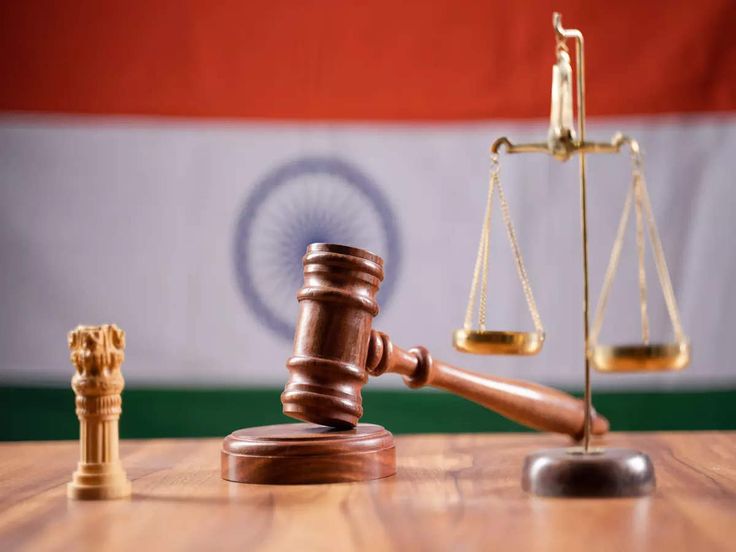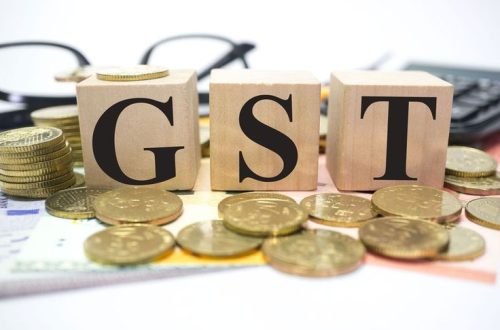This article examines the Hon’ble Supreme Court’s recent ruling in Radhika Agarwal v. Union of India [2025] 171 taxmann.com 832 (SC) a landmark judgment with significant legal implications. The decision addresses the constitutional validity of arrest powers under Section 69 and the issuance of summons under Section 70 of the Central Goods and Services Tax (CGST) Act, along with Section 104 of the Customs Act, 1962. The ruling strikes a crucial balance between the fundamental right to life under Article 21 of the Constitution and the state’s authority to conduct inquiries, investigations, and arrests under these special legislations.
Issue and Background
The case arose due to multiple petitions challenging the validity of arrest provisions under the Customs Act, 1962, and the CGST Act, 2017. The controversy stemmed from the applicability of precedent set in Om Prakash v. Union of India ((2011) 14 SCC 1), wherein the Supreme Court held that offenses under the Customs Act were non-cognizable. This meant that officers could arrest only after obtaining a warrant from the Magistrate under Section 41 of the Code of Criminal Procedure, 1973 (CrPC).
The reasoning in Om Prakash (supra) was based on the interpretation of Sections 4 and 5 of CrPC, concluding that customs and excise officers did not possess powers beyond those of police officers. Consequently, the CrPC provisions applied to these special acts to regulate the exercise of arrest powers.
The Supreme Court, in Radhika Agarwal (supra), refused to overturn the ratio of Om Prakash for the following reasons:
| 1. | The ruling had been in effect for over 12 years. | |
| 2. | The legislature had accepted the judgment and incorporated its principles into subsequent amendments to the Customs and GST Acts. | |
| 3. | The decision safeguarded citizens’ constitutional rights by preventing arbitrary arrests. |
To clarify technical terms, a ‘cognizable offense’ allows police to arrest without a warrant, whereas a ‘non-cognizable offense’ requires prior approval from a Magistrate. The Court reaffirmed that customs officers are not police officers and must adhere to legal procedures when exercising their authority.
Key Judicial Observations
The Court extensively relied on Directorate of Enforcement Vs Deepak Mahajan (1994) 3 SCC 440) to reinforce the statutory duty of customs officers to inform arrestees about their grounds of arrest. This duty stems from Article 22(1) of the Constitution and Section 5 of CrPC. Additionally, officers must adhere to Section 41-B of CrPC, ensuring clear identification for transparency and accountability.
The Court also directed strict compliance with CBIC Circular dated 20.02.1998, which aligns with the landmark ruling in D.K. Basu v. State of West Bengal (1997) 1 SCC 416. Further, it upheld the rights of arrested individuals under Section 41-D of CrPC, allowing them to meet an advocate during interrogation, though not continuously. Additionally, Section 55A of CrPC mandates custodial authorities to ensure the health and safety of detainees.
Threshold for Arrest and Investigation Guidelines
The Court emphasized that the threshold for arrest under Section 104(1) of the Customs Act is stricter than under Section 41 of CrPC. The phrase ‘reasons to believe’ must be substantiated by material evidence, facilitating judicial review. The department’s authority to arrest under Section 104 depends on fulfilling these statutory conditions.
Referring to Arvind Kejriwal v. Directorate of Enforcement[2024] 164 taxmann.com 318 (SC), the Court outlined essential safeguards for arrest under the Customs and GST Acts:
| 1. | Officers must document material evidence forming their ‘reasons to believe’ that the accused committed an offense. | |
| 2. | Such material must be legally admissible. | |
| 3. | Officers must justify whether the offense is bailable or non-bailable, cognizable or non-cognizable, along with compliance with monetary limits under Section 104 of the Customs Act and 132 of the GST Act. | |
| 4. | Arrestees must be informed of the grounds of arrest in writing. | |
| 5. | Any reasons to believe should be disclosed, except in specific cases requiring redaction. | |
| 6. | Investigators must consider all available material, including exonerating evidence. | |
| 7. | The doctrine of proportionality must be maintained during arrests. |
Implications on GST Enforcement
The Court clarified that the GST Act does not constitute a complete code for search, seizure, and arrest. CrPC provisions would apply unless expressly excluded by the GST Act. Arrests must be justified based on evidence meeting the conditions under Section 132(5) of the GST Act. Arbitrary arrests for mere investigation are impermissible, and the Commissioner must record a well-reasoned opinion before making an arrest.
The Court reaffirmed that arrest powers must be exercised cautiously, similar to service tax provisions. Officers cannot arrest based on mere suspicion or for investigative purposes without fulfilling the statutory prerequisites. This view aligns with the Delhi High Court’s ruling in Makemytrip (India) (P.) Ltd. v. Union of India[2016] 73 taxmann.com 31. However, the argument that arrest is impermissible without a tax assessment order was rejected, provided there exist ‘definite reasons to believe.’
The Court also mandated strict adherence to Board Instructions 02/2022-23 [GST – Investigation] dated 17.08.2022, as amended by Instruction No. 01/2025-GST (GST/INV/Instructions/21-22) dated 13.01.2025, before proceeding with any arrest.
Preventing Coercion and Misuse of Powers
A critical aspect of the ruling was the Court’s condemnation of coercive tax recovery methods without adjudication. Officers cannot use the threat of arrest to compel tax payments under Section 74(5) of the CGST Act. The Court declared such practices unconstitutional and violative of the rule of law.
The Board was directed to issue explicit guidelines to prevent the misuse of arrest powers for extracting tax payments without adjudication. If taxpayers are subjected to threats, coercion, or undue pressure, they may seek legal redress and claim refunds for coercively deposited taxes. The department must take disciplinary action against errant officers engaging in such practices.
Right to Anticipatory Bail and Conclusion
Lastly, the Supreme Court reaffirmed that courts retain the power to grant anticipatory bail under CrPC. The right to life and liberty under Article 21 of the Constitution safeguards individuals from unwarranted arrests. The Court upheld this principle by relying on the Constitution Bench ruling in Sushila Aggarwal v. State (NCT of Delhi) (2020) 5 SCC 1. Additionally, all conflicting judgments, including State of Gujarat v. Choodamani Parmeshwaran Iyer[2023] 152 taxmann.com 522/76 GSTL 146/99 GST 253 (SC) and Bharat Bhushan v. Director General of GST Intelligence[2024] 164 taxmann.com 435/88 GSTL 175/105 GST 345 (SC), were overruled.
In conclusion, the Supreme Court’s ruling in Radhika Agarwal v. Union of India and Others marks a significant step in ensuring the proper exercise of arrest powers under the GST and Customs Acts while upholding constitutional safeguards. By reinforcing due process, judicial oversight, and adherence to established legal principles, the judgment curtails arbitrary arrests and coercive enforcement practices. At the same time, it preserves the state’s ability to investigate and prosecute offenses under these special legislations. Moving forward, strict adherence to these guidelines will be crucial in maintaining a balance between tax enforcement and the fundamental rights of individuals, ultimately fostering a more transparent and accountable tax administration system.
Explore the full article here
(The author is a practicing advocate, Co-Founder and Legal Head of RB LawCorp.
He specializes in GST law. Suggestions or queries can be directed to
ashsharma@rblawcorp.in. The views expressed in this article are strictly
personal.)





